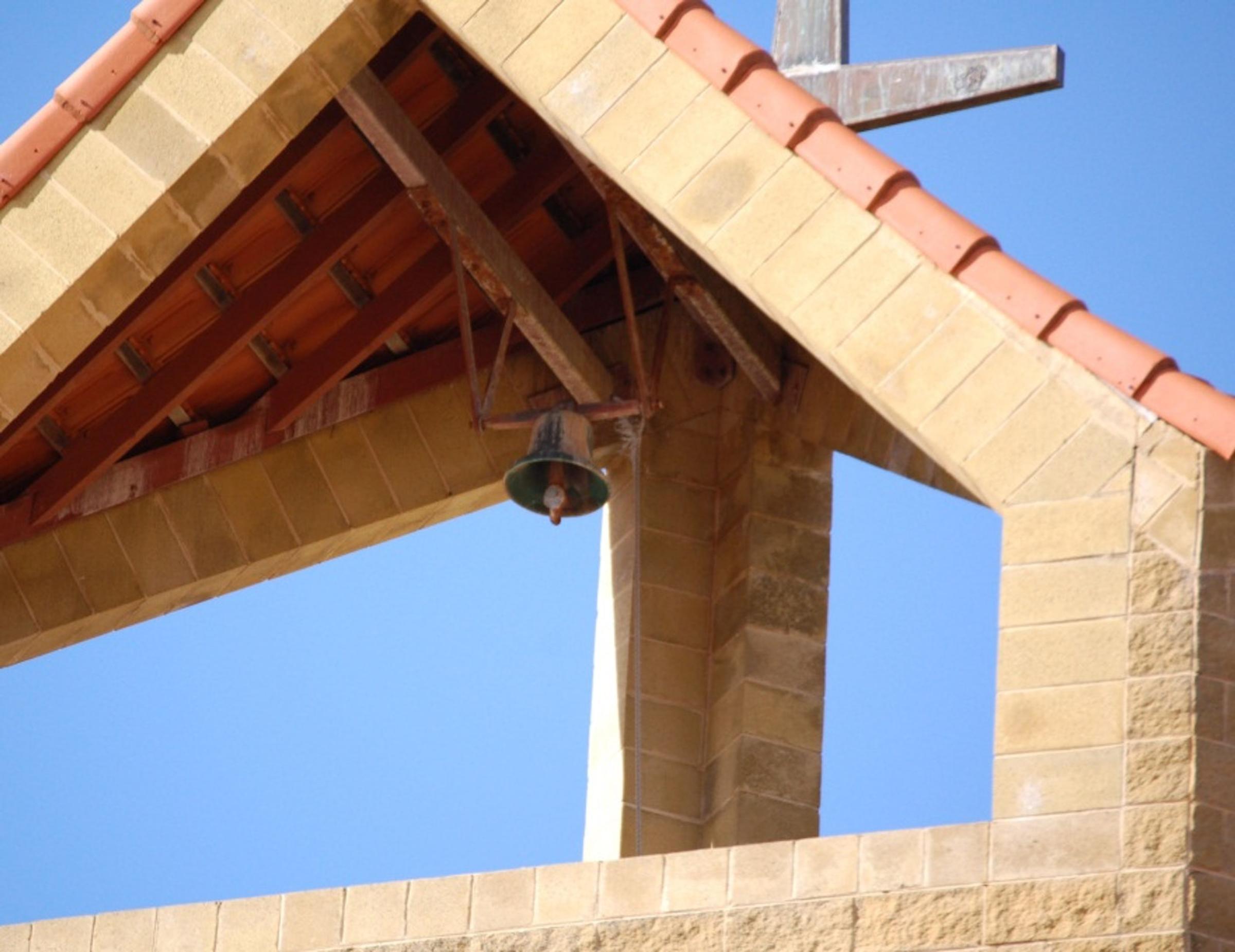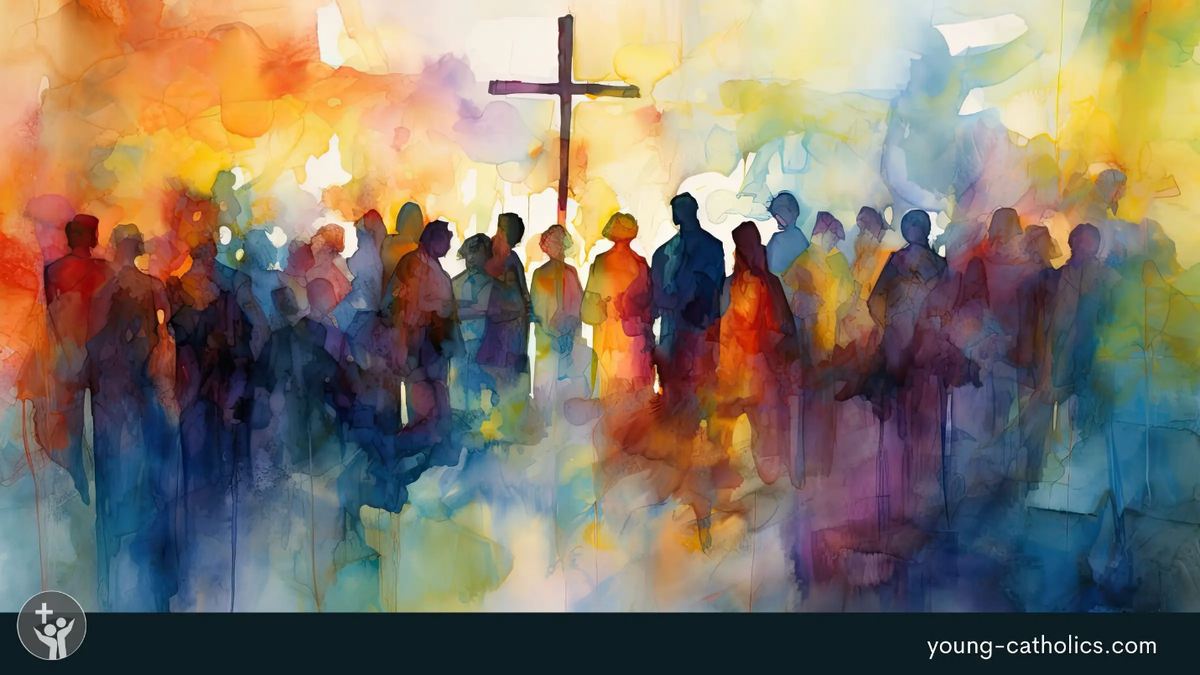Liturgy

Community Mass
Next week, Community Mass will be prepared by Alumni of John XXIII, St Louis and Loreto. Past students are always welcome at the Community Mass. However, at this annual Mass held during the month of All Souls, alumni prepare the readings and join their own prayer, with the prayer of the whole Church, for and with loved ones who have gone before us.
Whether you are a past or current student or family member, you are very welcome to attend the Mass and, afterwards, continue the ‘liturgy of life’ in the Circle of Friends Café.
Community Mass details:
- College Chapel
- Fridays in term time
- Starts: 8:00am and concludes 8:30am
ALL SOULS
The Church celebrates the Feast of All Souls on 2 November and dedicates the month of November to praying for and with our loved ones who have died.
All Souls Day always becomes more poignant in wartime. In a peaceful age we see death as personal and as generally the fate of the elderly. The trees and orderly graves in cemeteries telling stories of parents and children, who were loved by their families and who later joined them in neighbouring graves, depict death as the natural end of life’s cycle. The violent deaths in Israel and the rising death toll in Gaza, however, confronts us with death out of control. Whole families are killed, there is no space for private burials, and the network of stable relationships that bless human lives and form individuals into a community is broken. Death is indiscriminate and anonymous and almost beyond grieving.
All Souls Day is a Christian feast. Just as Christ came to join and to save all human beings, however, the message of the Day is for all people. It reminds us that each human being is precious in God’s eyes, that Christ died so that each human being should live fully, and that no one may be treated as disposable. When people die they are not precious because they are remembered; they are remembered because they are precious.
The feast of All Souls waited for some centuries to be part of the Church calendar. But the practice of remembering and praying in the Eucharist for Christians both living and dead was longstanding. The names both of people who had died and of living members of the congregation were recorded on wax tablets held in the church and read out during the Eucharist. As Monasteries spread throughout the world they chose special dates to remember the monks who had died. This practice then spread through the Church and eventually was celebrated on November 2, the day following All Saints Day.
As time passed, praying for the dead increasingly focused on people’s need to be cleansed of the effects of sin which they carried into death and delayed their entry to heaven. The prayers of living Christians could then help them to enter heaven. In times of anxiety about death, particularly from plague, this anxiety focused on those who had died and were in purgatory. Older Catholics may remember the zeal with which as small children they amassed indulgences to help get souls into heaven.
In today’s Church we place more stress on God’s unconditional love for us and to trust that it will be more powerful than the sinfulness of those who die. We focus more on the gift that their life has been and on God’s gift of life after death. All Souls Day is an occasion to pray with those we love who have died as well as to pray for them. It is a day to recognise that we belong to a community Christian community in which those who have died are united with those who live.
The association of All Souls Day this year with deaths recent and imminent in war, flood and earthquake, however, reminds us, as the Black Death and the constant wars reminded Christians in earlier times, both of the destructive power of sin in human lives and of the breadth of God’s love for us shown in Jesus’ death. All Souls Day is a day for thanking God for those whom we have loved and joining them in prayer. But it is also a day for remembering the power of human greed and hatred, for shame and compassion for their victims, and for amazement that Christ’s love outpaces our death-dealing ways of living.
© Andrew Hamilton
Father Andrew Hamilton is a Jesuit, a theologian, a writer and, among his many other roles, the Media Officer for Jesuit Social Services.
On the Way with Inigo - Spiritual Exercises for Everyday Pilgrims
An Online Ignatian Series over five Mondays in October & November 2023
When: October 30, November 6, 13, 20, 27 2023
Time: 7:00pm – 9:00pm
Where: Online via Zoom
Price: $200 AUD for all five sessions including input, guided contemplation, spiritual conversation and all program material.
This Online Ignatian Series is for anyone who is seeking to learn more about Ignatian Spirituality and who has a desire to incorporate this into their daily life and work.
This program was created especially for the Ignatian Year in 2021-2022, which marked the 500th anniversary of St Ignatius’ conversion in Loyola, his pilgrimage to Manresa and the formation of his Spiritual Exercises.
Over the course of the five Sessions participants will be introduced to the life of Inigo. The Course invites participants to reflect on their own story, to listen to and break open the significant moments of the life of St Ignatius, along with the core elements of what it means to live the ‘Ignatian Way.’
The elements (or Ignatian paths) we will prayerfully consider in this Series include….
- Path 1 - Inigo The Pilgrim
- Path 2 - Walking with God in Creation
- Path 3 - Walking with God’s Love
- Path 4 – Walking with Jesus
- Path 5 – Walking with the Spirit
Each week participants will be provided with input and practical exercises for reflection and prayer that will include, Scripture, Poetry, Story, Art and Music, along with a selection of contemporary Ignatian Voices.
We hope it will be a valuable tool for personal growth and integrating spirituality into daily living. There are no prerequisites! All are welcome!
For further information and Booking through the JISA website - CLICK HERE


